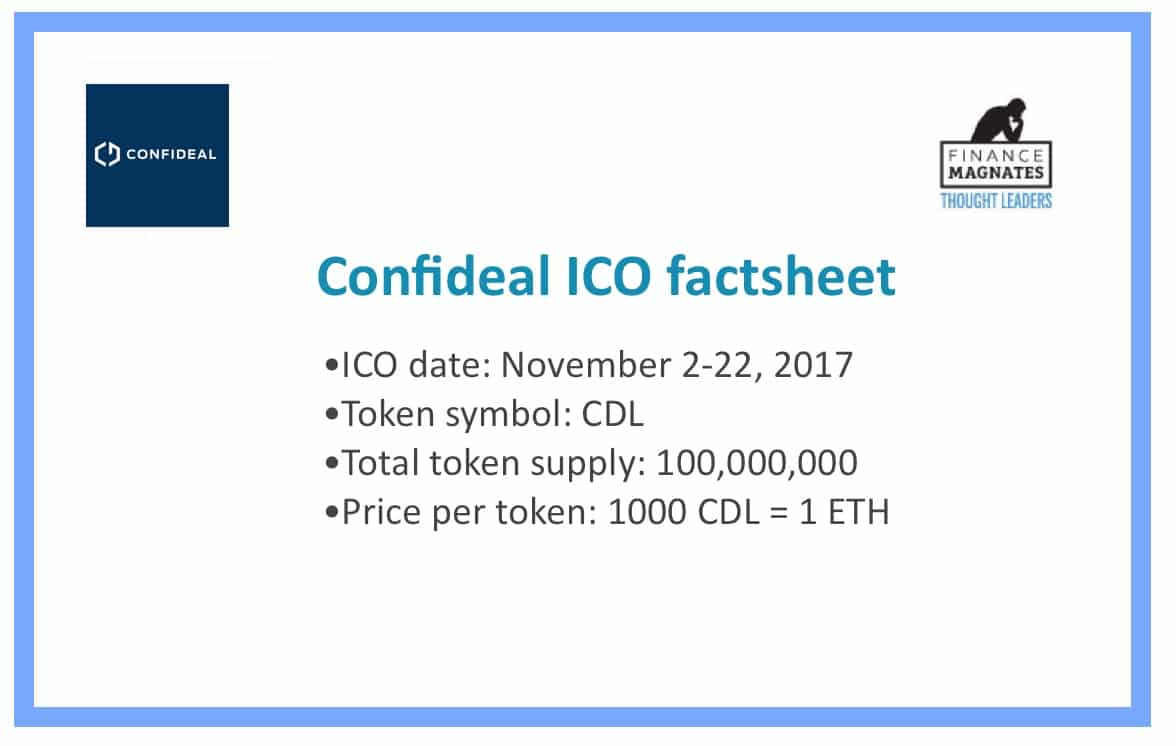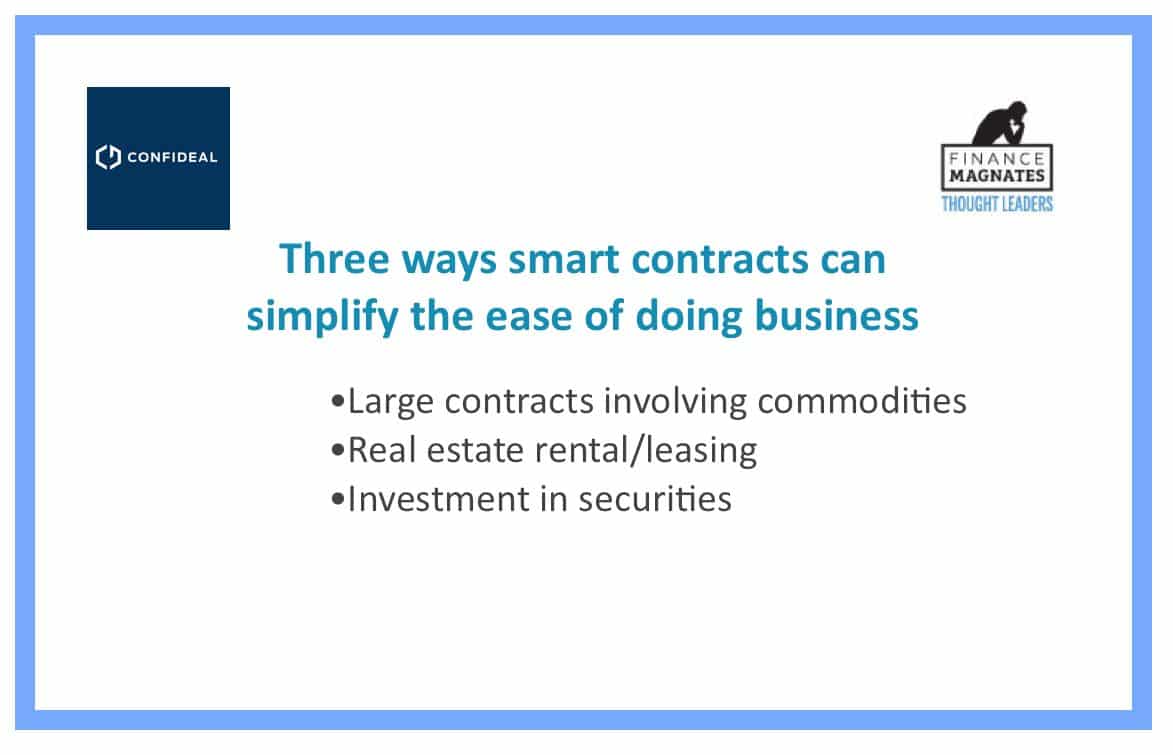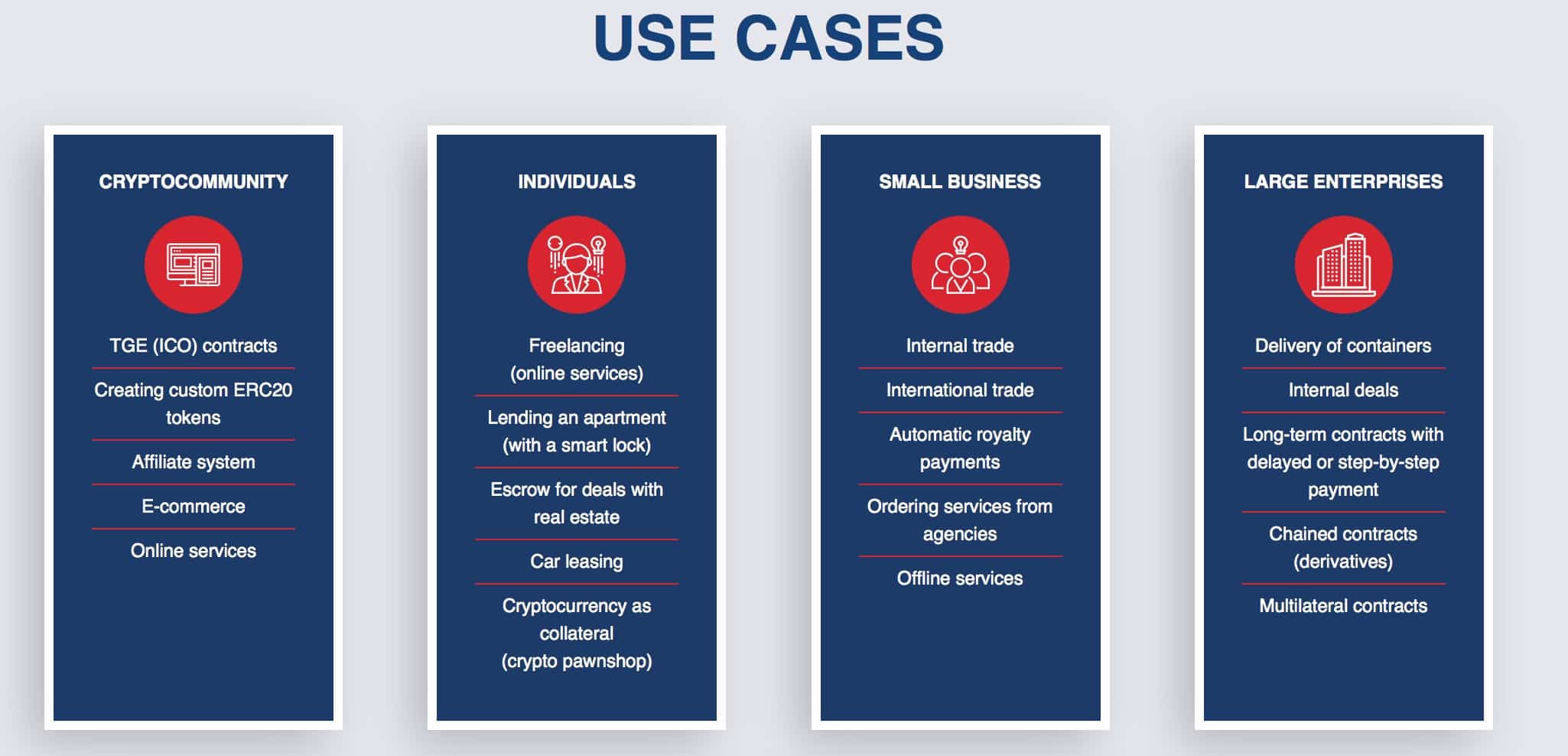The financial services industry revolves around trust. Indeed, business processes are dependent on the quality of the identity and reputation of the counterparties and many good business deals do not go beyond the drawing board because the element of trust is missing. Interestingly, Blockchain technology can be very valuable in distilling the latent potential in identity, trust, and reputation in order to foster increased business relationships.
This stance was echoed by Airbnb’s co-Founder and CTO Nathan Blecharczyk, who explained: “I think that, within the context of Airbnb, your reputation is everything, and I can see it being even more so in the future, whereby you might need a certain reputation in order to have access to certain types of homes." Consequently, trust could potentially become one of the core building blocks of the emerging gig-economy.
In a market research report detailing and exploring the most interest tech trends in 2017, researchers at Deloitte Insights observed that blockchain "makes it possible to share information selectively with others to exchange assets safely and efficiently and – perhaps most promisingly – to proffer digital contracts."
As such, blockchain technology is gradually growing out of Bitcoin's overbearing shadow to stand alone in its own right as a disruptive force with an incredible ability to trigger a paradigm shift. With decentralized distributed ledgers, Blockchain makes it is easy for businesses to manage vulnerable and valuable data relating to their identity, reputation, and trustworthiness.
Here's how a blockchain startup aims to lower the business trust barrier
Confideal, a blockchain startup, believes that a business relationship doesn’t have to be slow, stressful, and inaccessible because of lack of trust, transparency, and data protection. It is shameful that many businesses are unable to leverage opportunities for strategic partnership because the processing of creating and enforceable business contracts is too cumbersome.
Confideal has created a user-friendly platform where individuals, businesses, and organizations can create smart business contracts without hiring the services of a lawyer or a computer programmer. The Confideal platform makes it easy to write, manage, and enforce self-executing contracts on blockchain technology with anybody in any part of the world without having to employ the services of third-party deal facilitators.

Another great feature of Confideal is that contract data is protected by encryption on the Ethereum on blockchain guarantees that the terms of the contracts are immutable. More interesting is the fact that there's no need to share personal information to create smart contracts or to resolve disputes in arbitration.
Of note, Confideal is in the process of preparing for the sale of the CDL token that will be used on its platform. The CDL token serves as a means of exchange to pay counterparts in contract deals. Confideal users can also use the CDL token to avoid the 1 percent contract value usually charged on fiat currencies. All other services such as arbitration on the Confideal platform can also be paid for with the CDL token. Prospective investors are encouraged to read the group's white paper.
The CDL token will receive a particularly warm welcome among cryptocurrency investors who will be keen on getting a first-mover advantage into the smart contracts ecosystem. It is worthy of note that Confideal raised more than $650,000 when it held a presale for the CDL token in August. Hence, the firm might want to avoid overselling the CDL token by restricting the token sale to accredited investors alone.

Large contracts involving commodities
Smart contracts can be valuable in international trade of commodities such as crude oil, farm produce, and precious metals. For instance, crude oil producing countries and refineries can use blockchain to set up smart contracts for involving the purchasing, shipping, and delivery of crude oil.
A crude-oil delivery contract will include the number of barrels of oils to be shipped, the quality of oil – with accepted impurity, viscosity, and grading, the date the oil tanker will depart the territorial waters of the oil producer, and the expected arrival date of the tanker at the buyers port.
The oil tanker can also be outfitted with IoT enabled sensors that tracks the elements of the contracts automatically. The contract can also be designed to track arrival date and time, payment of custom duties, and unloading of the vessel; after which, funds held in escrow will be released. The same principle can be applied to the shipment of other commodities such as wheat, corn, gold, and soybean shipments.
Real estate rental/leasing
Smart contracts can be deployed for the management for real estate assets when creating leasing/rental agreements. Used in addition to Smart Locks, smart contracts can be used to grant or revoke access on the payment of rental fees or default of rental Payments . A property owner and landlord can enter into a rental agreement encoded on Blockchain.
When the rental pays their rent, the payment triggers activation of the Smartlock to grant access into the home; however, a portion of the rent might be encoded to be inaccessible to the property manager until the renter confirms that the property management obligations of the landlord have been duly met.
Investment in securities
Smart contracts can also play a valuable role in upending the dynamics of Wall Street by changing how people invest. When people invest in securities, they always have to go through intermediates known as asset managers, portfolio managers, and wealth managers.
All these intermediaries in turn take a management fee or transaction fee to further reduce the accruable gains to investors. Smart contracts can automate the payment of stocks splits and dividends to investors without employing the services of intermediaries. In addition, smart contracts also makes it easier for firms to keep proper ownership records of shareholders while shareholders will find it easier to sell their stakes without much need for authentication.

Final words
It is still somewhat too early to predict with any degree of certainty how soon blockchain will be able to break down the trust barrier for businesses. However, the current state of blockchain technology shows an astounding resemblance to the early days of the Internet.
The Internet enjoyed a great deal of buzz, criticism, and skepticism about its potential and value. Many people latched on the Internet with high hopes of disruption while a large number of people held on to the old order. Interesting, many people made their fortunes when the Internet shot to limelight – of course, many other lost their fortunes in the dotcom crash; and there's now a sense of stability in the prospects of the Internet.
Are you still in doubt whether #Confideal token sale will #succeed?
Learn why you should not miss your #chance!https://t.co/WJ4MnMkaY2 — Confideal (@confideal_io) October 25, 2017
Blockchain technology is still in infancy – fortunes will be made and be lost as the technology evolves to build a stable base that will serve as the launch pad to the mass market. Many people are skeptical about the inherent possibilities in blockchain, cryptocurrency, and smart contracts; yet, the fact remains that Blockchain hold massive potential and it would upend the current order of things.












